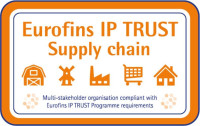In Europe, the topic of GMO foods is often discussed among consumers. The global trend is rather the opposite and the cultivation of genetically modified plants continues to increase. With around 190 million hectares of arable land worldwide in 2019, the cultivation of genetically modified plants has taken on a significant role. It is important for manufacturers to be aware of their use in the ingredients they supply.
By Peter Zunke
In the EU, the cultivation of genetically modified plants has so far played a very minor role. Consumer concerns about the technology, which is young compared to conventional breeding methods, in terms of its impact on the environment, safety and health are at the forefront in the EU. In 2022, for example, only 0.77 % of maize acreage in the EU was planted with genetically modified maize. However, the USDA report "Biotechnology and Other New Production Technologies Annual" from December 2022 also confirms the relevance for food and feed in the EU due to the import of significant quantities of GM soya, maize and rapeseed products. It is roughly estimated that around 90 % of imported soya, 30 % of imported maize and 25 % of imported rapeseed products are based on genetically modified plants. The legislator in the EU and the national legislative bodies take into account the predominant consumer wishes and entry risks with strict regulations for the labelling of foodstuffs, among other things.
Regulation (EC) 1829/2003 on genetically modified food and feed states that
• Food and feed containing genetically modified organisms (GMOs) must be labelled
• There is only an exception for adventitious or technically unavoidable contamination by authorised GMOs if this is less than 0.9 %. If the proportion is above 0.1 %, an individual decision must be made as to whether GMO labelling is necessary. The burden of proof lies with the company
• Zero tolerance for GMOs without authorisation
• No labelling of animal products if the animals have been fed with GMOs
The coexistence of genetically modified and conventional plants in our globalised supply chain makes the necessary transparency for the safe sourcing of raw materials more difficult. Therefore, all stakeholders (seed breeders, farmers, traders, food and feed manufacturers and retailers) must avoid the introduction of genetically modified organisms into "GMO-free" production lines and have established appropriate measures. It should be noted that the risk of GMO contamination depends on the raw material and its plant variety. Agricultural crops such as soya, rapeseed and maize are often further processed and the sometimes highly processed substances are used as ingredients for the food industry, e.g. for the confectionery industry:
• starches
• various sugar syrups (e.g. glucose syrup)
• lecithins
• oils
It is the responsibility of the manufacturer to ensure that the food is properly labelled or, if GMO labelling is not required, to ensure that there is no contamination with GM material. This is a particular challenge in the case of highly processed raw materials and their use in foods with many ingredients. Processing steps such as mechanical processing steps (friction, shearing, pressure, etc.), heating, chemical processing steps, fermentation, etc. lead to the potential degradation of DNA. Even with conscientious testing and regular analysis of the ingredients using PCR, it cannot therefore be ruled out that the GMO content in the respective raw material is above internal or regulatory thresholds for mandatory labelling in the case of highly processed products. The sometimes high complexity of the supply chains and processing steps makes it difficult for users of highly processed raw materials to ensure that legal and, above all, consumer requirements are met. Proof and verification of the labelling obligation for the end product is often analytically difficult for the reasons described above. These challenges can be met with optimised transparency in the supply chain and independent certification, which creates trust and security:
The IP (Identity Preservation) Trust™ standard from Eurofins Food Assurance is ideally designed for this. Certification is a traceable and suitable documentation system for checking the relevant raw materials for GMOs along the supply chain from cultivation, harvesting, transport and storage through to processing. A distinction is made between the certification of the individual stakeholders along the supply chain and the food manufacturer. With IP Trust™ Supply Chain certification, the supply chain is certified by Eurofins as a neutral service provider. This creates a high degree of transparency. Companies (e.g. food manufacturers) that have been certified according to Eurofins IP Trust™ Site also benefit. New suppliers are audited by Eurofins. With Eurofins expertise and industry experience, existing measures and documents of your suppliers are reviewed and any necessary next steps are discussed. The scope of testing used for the inspection of raw materials and finished products must be suitable to cover the risk of GMO contamination! The selection of insufficient test scopes is not suitable for guaranteeing the exclusion of GM material, as the example of the GMO tests for soya in the diagram shows. Therefore, it is very important to know how to select the appropriate tests and the recommended test frequency. Eurofins is ideally positioned to support the management of GMO risk. The certification according to IP Trust™ is supported by Eurofins' excellent knowledge of both industry and GMO analyses in unique synergy!






